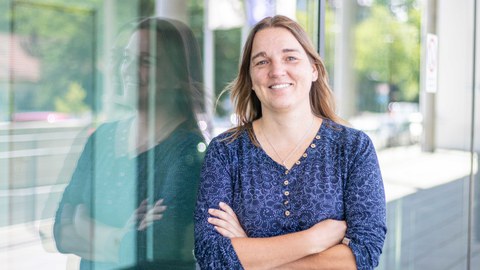Jul 01, 2020
Anna Poetsch starts as a new MSNZ fellow and BIOTEC group leader in Dresden
As trained biochemist with bioinformatics expertise, Anna Poetsch's research group "Biomedical Genomics" wants to apply machine learning approaches to analyze clinically relevant data sets
BIOTEC welcomes Dr. Anna Poetsch as a new research group leader. Her group "Biomedical Genomics" will focus on the development of mutations in cancer. Dr. Anna Poetsch is supported by the BIOTEC, the National Center for Tumor Diseases Dresden (NCT/UCC) and the Mildred Scheel Early Career Center Dresden. At the moment, the Poetsch group consists of two scientists and is currently recruiting for several new positions.
Dr. Anna Poetsch has spent the last two years at the St. Anna Childhood Cancer Research Institute in Vienna, focusing her research on the development of mutations in children with cancer. Following her doctorate at the German Cancer Research Centre in Heidelberg, she was a research fellow at the Francis Crick Institute / University College London and the Okinawa Institute of Science and Technology between 2013 and 2018. There she focused on computational biology studying the genomics of DNA damage and repair. She received her Master's degree from the University of Konstanz and the Japanese National Cancer Center Research Institute in Tokyo.
"To date, the mechanisms leading to individual patterns of DNA damage and somatic mutations have been poorly explored. However, this information should be the basis of an individual cancer therapy. Using the latest sequencing techniques, we can now pave the way for personalised cancer therapy and allow for strategies reducing the treatment side effects on healthy cells of the patient," explains Dr. Anna Poetsch. Her research group employs computational techniques and machine learning approaches to assess and model DNA damage and repair processes, mutagenesis and genome editing to develop clinical applications. "We will work to understand this in the context of different cancer types and as a consequence to different treatment regimens tissue specifically. I am very much looking forward to the upcoming projects and the cooperation in the Dresden network of scientists and physicians in the fight against cancer.”

